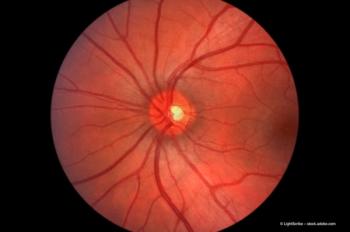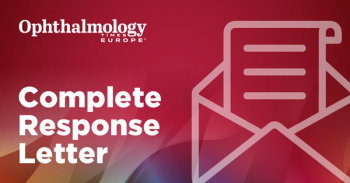
Archway: Phase 3 end-of-trial results show Port Delivery System is noninferior to monthly ranibizumab
Dr Aleksandra Rachitskaya discussed the Phase 3 Archway end-of-trial results for the investigation of the Port Delivery System with ranibizumab in neovascular AMD.
In Fort Lauderdale, Florida, United States, Dr Aleksandra Rachitskaya presented, “End-of-Study Results from the Phase 3 Archway Trial of the Port Delivery System With Ranibizumab in Neovascular Age-Related Macular Degeneration.” The Port Delivery System (Susvimo, Genentech) received US FDA approval in October of 2021.
Video transcript
Well, thank you so much for having me. And it's a pleasure to talk to you today about the presentation that I delivered at the Retina World Congress in Fort Lauderdale, Florida.
So what I focused on was the results of the end of trial for Archway. Archway, as you might know, is a study that focused on the Port Delivery System. And it's really a pivotal trial that compared the Port Delivery System for the treatment of neovascular AMD to monthly ranibizumab.
The way this trial was structured, it had the Port Delivery System that was surgically implanted, and then refilled every 24 weeks and the control group were the patients who received ranibizumab monthly. We know that the primary outcomes were at week 36 to 40, and those results have been released and showed that Port Delivery System is noninferior and equivalent to monthly ranibizumab.
So in this presentation, we focused more at the secondary outcomes. So we looked at the visual acuity outcomes at 60 to 64 weeks as well as 88 to 92 weeks. And we also looked at anatomic outcomes, patients who required supplemental ranibizumab in Port Delivery groups and also at the safety. So that's kind of the big picture of what we looked at.
And the Port Delivery System is a surgically implanted reservoir that allows for continuous delivery of ranibizumab in patients with neovascular AMD. In fact, based on the Archway results, we have approval, FDA approval, for patients with neovascular AMD to receive the Port Delivery System. And those are patients who have been treated with two or more anti-VEGF agents.
So looking at the results of—end-of-trial results showed that in terms of visual acuity, the Port Delivery System was noninferior to monthly ranibizumab. We also saw very nice OCT findings, they were consistent and showed drying of the retina.
The other interesting aspect that we saw is by the end of the trial patients were eligible for 4 refills, so refills occurred every 24 weeks. So they were able to get 4 refills. Before each of these refills, at several visits before, patients were eligible to receive supplemental ranibizumab if they needed it, based on particular criteria. And so the study showed that 95% of patients did not require any supplemental ranibizumab. So that's interesting information in terms of efficacy of the Port Delivery System.
And then finally, we looked at the safety because this is a surgical procedure. So safety, of course is extremely important. And we didn't see any new safety concerns compared to the primary outcomes. In particular, we looked at the conjunctiva retraction and erosion, endophthalmitis, implant dislocation and septum dislodgement.
So, in summary, the end-of-trial results showed that when it comes to Port Delivery System, it is noninferior to monthly ranibizumab in terms of visual acuity and OCT outcomes, and the adverse events were manageable, and we continue to learn how to improve this surgery and make this successful for our patients.
Note: This transcript has been lightly edited for clarity.
Newsletter
Get the essential updates shaping the future of pharma manufacturing and compliance—subscribe today to Pharmaceutical Technology and never miss a breakthrough.




























